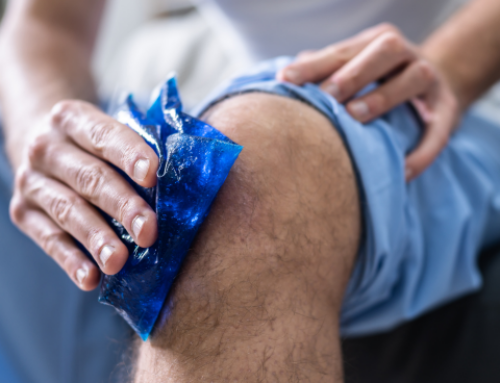Head Injuries Are Dangerous Even If They Don't Cause a Concussion
Think you’ve dodged a bullet by passing a concussion test after a hard hit to the head? A new study published in the journal Neurology suggests that you may still need to take precautions. In the study, students’ testing abilities suffered after taking hits to the head in hockey and football games, even if the hits didn’t cause a concussion.
More than 200 hockey and football athletes took part, along with 45 non-contact sport athletes in sports like track and crew. Both groups took academic tests before their seasons. The contact sport athletes received special helmets that measured blows to the head throughout the season. The average contact sport athlete received 469 head blows during the season, and those who received concussions were eliminated from the study.
None of the athletes in either group suffered declines in their thinking and memory tests before or after the season. However, 22 percent of hockey and football players had worse-than-expected postseason scores on a learning test, compared to only four percent of non-contact-sport athletes.
Researchers caution that the study is only a starting point for future research since it doesn’t provide a clear link between the number or severity of hits and learning ability, and it doesn’t determine how long certain athletes may have had stunted learning abilities. Meantime, remember that a blow to the head doesn’t have to cause a concussion to do damage. Report all head injuries to a coach and treat any injury to the head with the same care you would a concussion.
Perform These Exercises to Help Prevent a Concussion
Four Simple Tips to Understand and Prevent Concussions
Photo: Chip Griffin on Flickr.com
RECOMMENDED FOR YOU
Head Injuries Are Dangerous Even If They Don't Cause a Concussion
Think you’ve dodged a bullet by passing a concussion test after a hard hit to the head? A new study published in the journal Neurology suggests that you may still need to take precautions. In the study, students’ testing abilities suffered after taking hits to the head in hockey and football games, even if the hits didn’t cause a concussion.
More than 200 hockey and football athletes took part, along with 45 non-contact sport athletes in sports like track and crew. Both groups took academic tests before their seasons. The contact sport athletes received special helmets that measured blows to the head throughout the season. The average contact sport athlete received 469 head blows during the season, and those who received concussions were eliminated from the study.
None of the athletes in either group suffered declines in their thinking and memory tests before or after the season. However, 22 percent of hockey and football players had worse-than-expected postseason scores on a learning test, compared to only four percent of non-contact-sport athletes.
Researchers caution that the study is only a starting point for future research since it doesn’t provide a clear link between the number or severity of hits and learning ability, and it doesn’t determine how long certain athletes may have had stunted learning abilities. Meantime, remember that a blow to the head doesn’t have to cause a concussion to do damage. Report all head injuries to a coach and treat any injury to the head with the same care you would a concussion.
Perform These Exercises to Help Prevent a Concussion
Four Simple Tips to Understand and Prevent Concussions
Photo: Chip Griffin on Flickr.com











